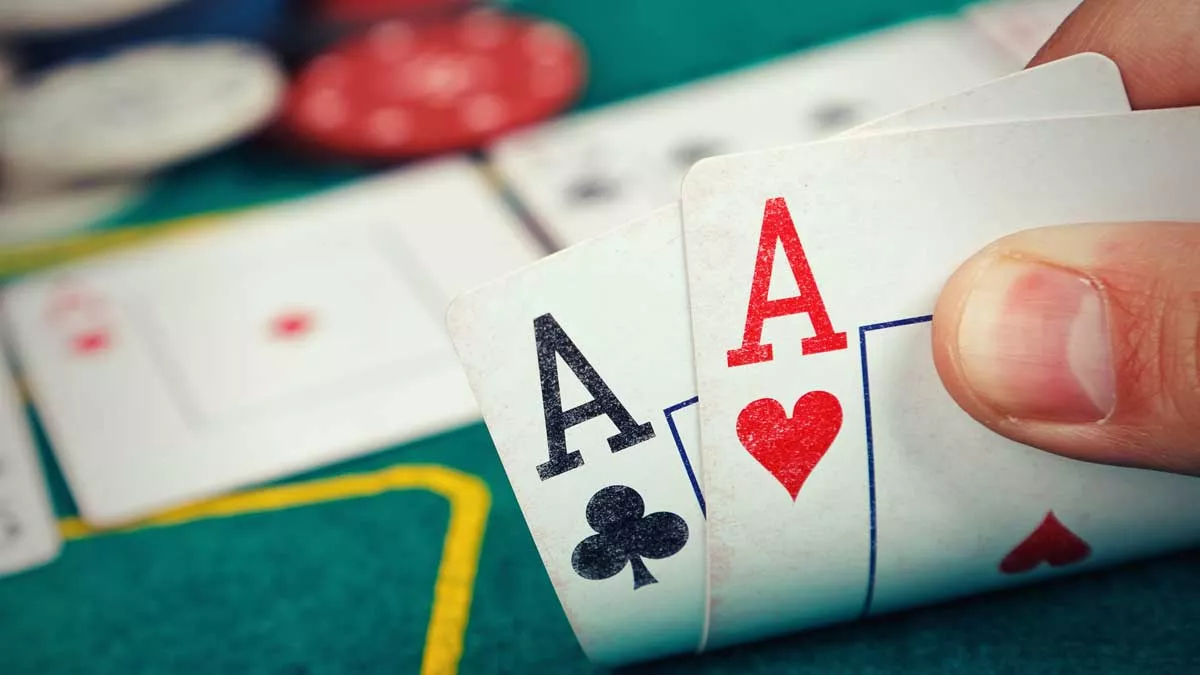Poker, full of planning and expertise, not forgetting the touch of chance, has held players’ interest worldwide for many years. It can trace its beginnings back to various games from diverse cultures. Now, it’s recognized all over as a mind game loaded with strategy. Poker’s charm rests in its blend of mental depth and inherent strategic complicity visible in each hand.
From friendly games to high-profile tournaments, poker has established itself in both competitive and fun gaming arenas. Its numerous variants, each with its unique rules and strategies, provide extensive and varied experiences for players at all levels. The cornerstone of this experience lies in appreciating and using starting hands, which often shapes the whole gameplay.
Understanding the Criticalness of Good Poker Starting Hands

The term playable poker starting hands is key to any poker plan. These are the initial cards dealt at the beginning of each hand and form the basis for players’ tactics and strategies. In a game like Texas Hold’em, it refers to the two-hole cards each participant gets.
The value of these cards varies a lot, from the desired duo of aces to a combination of low, unsuited, or non-connecting cards. The knack to identify which hands are best to play and which to fold is a crucial poker skill, significant for a player’s ongoing success.
Best First Moves in Texas Hold’em
Texas Hold’em has some top starting moves. You’ll hear folks call Aces “pocket rockets,” and Kings get labeled “cowboys.” Those and Queens, plus Ace-King suited, are often the go-to moves. Why? They can create strong results like straights, flushes, or triple cards once the community cards are handed out.
Hand Power and Player Spot
By no means is a poker hand’s power set in stone. Your seat at the table greatly sways it. First up to play? You need to be pickier with starting hands. But sitting late around the table, you get the benefit of watching opponents play first.
More info means better choices with a broader range of starting hands.
Poker Type Impacts Starting Moves
Texas Hold’em starting strategies are no secret. But games like Omaha and Seven-Card Stud change the game. Omaha deals each player four cards, yet they must use only two with the community cards. That twist increases the importance of suited connectors or high-card pairs. In Seven-Card Stud, seeing opponent’s cards affects starting hand power perception.
Adjusting to Game Trends and Competition Actions

In poker, a key approach is adjusting to the game’s flow and how opponents act. The worth of the same starting hand varies based on the number of players, how they play, and the size of bets and raises. Keeping an eye on these elements and altering starting hand choices accordingly is a skill honed through time and mindful examination of the game.
Tricks and Mental Tactics
Poker heavily involves tricks, allowing players to potentially win a round with a weaker starting hand by swaying opponents’ thoughts. Effective tricking needs an understanding of opponents’ habits and the game’s wider psychological aspects. The aim is to convince others that your hand is more potent than it seems, a strategy that can shift a game’s outcome.
Cash Management and Card Choosing
Another crucial part of poker is managing money effectively. Players should modify their starting hand preferences considering the stakes they’re wagering and their total financial plan. Playing too freely with insufficient funds or too cautiously in high-stakes games can lead to significant repercussions.
Learning from Experts
Looking into the methods and plans of professional poker players can give priceless lessons about starting hand choices and overall game moves. Many professionals have penned down books, made instructional videos, and discussed their experiences in interviews, providing plentiful knowledge for both newcomers and experienced players.
Luck vs. Skill in Poker
Unfavorable hands can sometimes win in poker due to chance. This thrilling gamble – the unexpected card flip or a lucky trick, means that the best hand doesn’t always come out on top. Mastering the dance between calculated moves and accepting poker’s unpredictable charm is part of the game’s irresistible allure and challenge.
Conclusion

Perfecting poker opening hands is a constant cycle of learning, adjusting, and improving your skills. For beginners or experts, getting to grips with “playable poker starting hands” is fundamental for sound decision-making.
